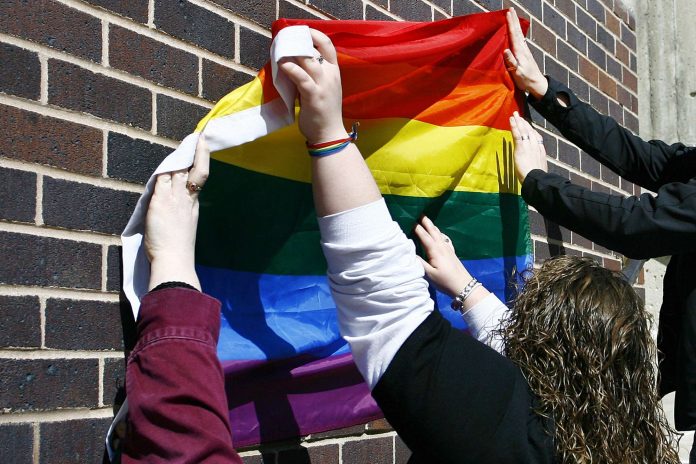
By Steve Karnowski
Associated Press
(AP) – The Iowa Supreme Court affirmed the hate crime conviction Friday of a man who posted hand-written notes at homes with rainbow flags and emblems, urging them to “burn that gay flag.”
The majority rejected the claim by Robert Clark Geddes that his conviction for trespassing as a hate crime violated his free speech rights. But a dissenting justice said a hate crime conviction wasn’t appropriate since it wasn’t clear if the people displaying the symbols were actually associated with the LGBTQ+ community.
As the court noted, the rainbow flag has come to symbolize support for LGBTQ+ rights. The majority said the state statute in question does not criminalize speech, but rather conduct with a specific intent — trespassing because the property owners or residents had associated themselves with a protected class.
Handwritten notes turned up in June of 2021 taped to the front doors of five renters and homeowners in the town of Boone who displayed rainbow flags or decals. All said, “burn that gay flag.” One contained additional anti-gay slurs. The recipients told police they found the notes “alarming, annoying, and/or threatening,” according to the decision.
Based on surveillance video from some of the homes, police identified Geddes as the man who left the notes, and he acknowledged posting them. He was charged with five counts of trespassing as a hate crime. He was later convicted and was sentenced to up to two years of probation.
On appeal, Geddes argued prosecutors failed to prove he targeted persons who were LGBTQ+ or had a connection with them. He said his conviction therefore violated his free speech rights.
Iowa’s hate crime law requires that the victim was targeted because of their “race, color, religion, ancestry, national origin, political affiliation, sex, sexual orientation, age, or disability,” or because of their ”association with” people in those categories.
In his dissent, Justice Matthew McDermott said there was no evidence in the record that the recipients of Geddes’ notes were members of the LGBTQ+ community or whether he believed they were, nor whether any of the residents had an “association with” an actual person in those protected classes. He noted that the Legislature chose the words “association with” rather than “solidarity with” when it wrote the hate crime law.
Geddes’s attorney Ashley Stewart said they were disappointed in the decision.



















